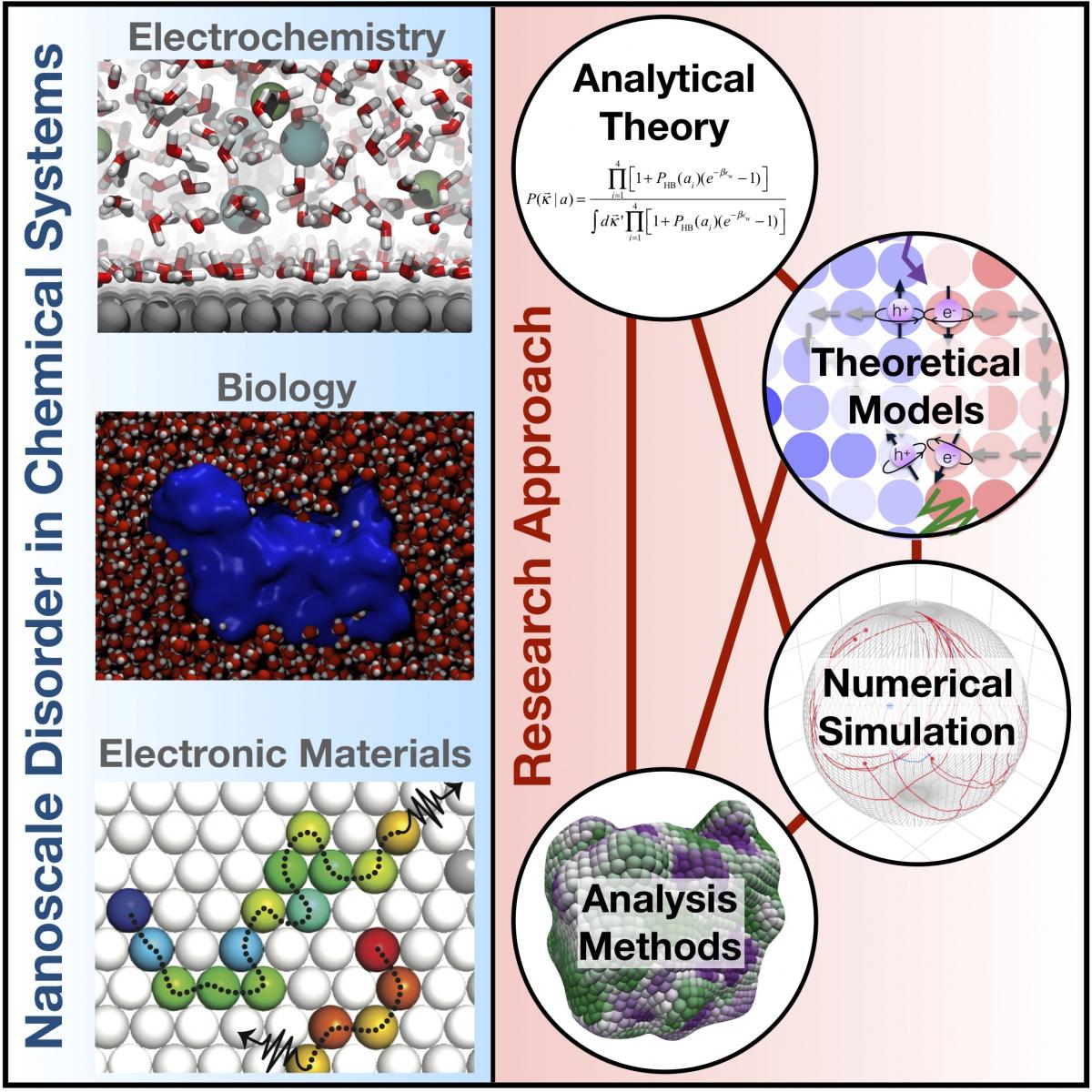Exploring how emergent properties in chemical physics are controlled by nanoscale disorder.
The Willard Group, Spring 2023
Research

Our research focuses on answering fundamental questions related to the influence of nanoscale disorder on emergent physical properties in biology, catalysis, and material science. To answer these questions, we utilize a combination of theory, modeling, and simulation. The four key elements of our research approach are:
1. The development of analytical theories. We use principles from statistical mechanics to derive mathematical relationships between microscopic and macroscopic system properties. These relationships allow us to generate novel theoretical predictions and discover new modes of control over system properties.
2. The creation of theoretical models. We reduce highly complex systems to simplified mathematical models that contain a minimal set of physical ingredients. These models allow us to perform in-silico experiments designed to generate or validate scientific hypotheses.
3. The execution of numerical simulation. We carry out molecular simulations of systems under various conditions. By comparing simulation data to experimental results, we can validate the physics of our model or provide a molecular basis for interpreting experiments.
4. The development of tools for analyzing simulation data. We develop novel approaches to quantifying and visualizing the large and complex data sets that result from molecular simulation. These tools provide physical insight that can catalyze the development of new theories or models.
To find out more about the research in our group visit the research page.
